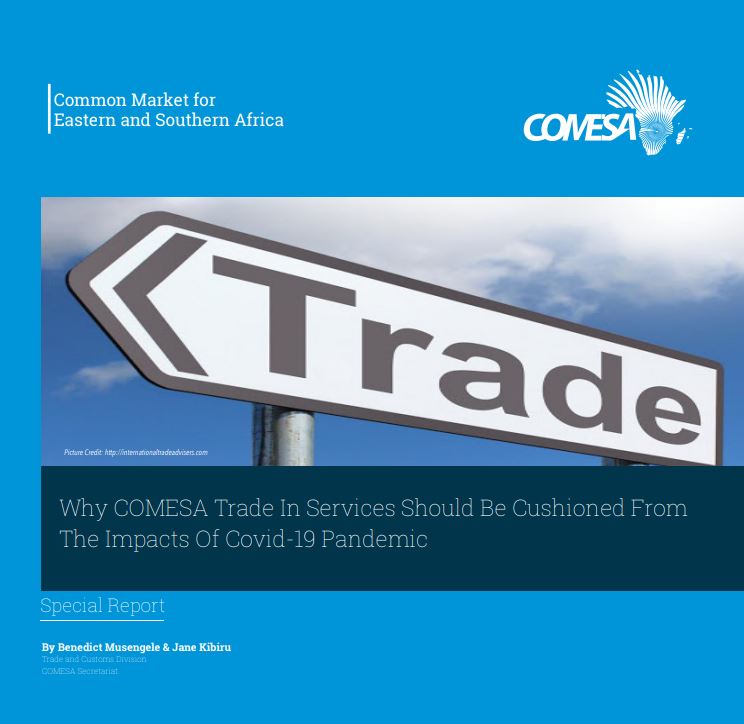
The services sector accounts for more than half of COMESA’s GDP and over a third of employment, outpacing manufacturing and agriculture sectors in terms of growth generation, income and jobs.
According to a report prepared by research experts at the COMESA Secretariat, the value added by services account on average to 52.5% of the Gross Domestic Product and contributes 37.2 % of the total employment (2018).
With the Covid -19 pandemic, services, which rely on physical proximity between suppliers and consumers have been most impacted by mobility restrictions and social distancing measures. Transport and travel services, which constitute the bulk of regional trade have been the worst hit. On the other hand, those that rely on digital technologies, such as financial services have shown greater resilience.
The report prepared by the research experts, Benedict Musengele and Jane Kibiru states that the Covid-19 crisis has shifted the focus of Member States from the traditional services sectors of transport and travel-related services.
“Transport and travel services account for 83% of the total exports and 66% of the total imports. This implies that they are the major traded services in the COMESA region with the other major sector in imports being Other Business Services, accounting for 18%,” the report says.
In COMESA region, travel and tourism accounts for more than 40% of the services exports in addition to its contribution in GDP and employment. Yet, these are heavily affected by the pandemic because most of the inbound arrivals are from countries most hit by covid-19 such as US, UK, France, China, Germany and Italy.
In aviation sector, the International Air Transport Association estimates that African airlines could lose US$6 billion in passenger revenue, 3.1 million jobs and related industries. Ethiopia, Kenya and Mauritius are quoted among the hardest hit in Africa and COMESA. Ethiopia and Kenya could lose US$1.9 billion and US$1.6 billion of their respective contributions to their economies.
The road transport sub-sector, which accounts for over 80% passenger traffic and 76% freight in most of the COMESA Member States continue to experience revenue and employment loses due to the slowdown economic and social activities.
On the positive side, the report cites advancements in digital technologies as having led to greater attention on online supply in sectors such as retail, health, education, telecommunications and audiovisual services.
“These have accelerated companies’ efforts to expand online operations and created new consumer behaviour that are likely to contribute to a profound and long-term shift towards online services” the report says. “Accordingly, financial services are less affected due to the digitization that have taken place such as internet and mobile banking.”
The report however notes that some services such as telecommunication may benefit from the pandemic due to the ‘working from home’ arrangement and uptake of e-commerce as people observe social distancing. Greater liberalization of financial and telecommunication services would help to reduce costs of services provisions which are currently high.
Given the critical role trade in services plays in the COMESA region, the report recommends a number of measures to mitigate the adverse effects in the sector. Specifically, as countries develop exit strategies, there is need to reduce restrictions and/or liberalize services sectors to ease movement of professionals like medical personnel, engineers, technicians, essential goods and services across borders.
“Governments should ensure smooth and continued operation of the logistics networks that serve as the backbone of regional supply chains, improve digital infrastructural foundations to improve internet, and enhance investments in internet infrastructure and penetration to promote online supply of services, while embracing e-commerce in trade in services,” the report concludes.

